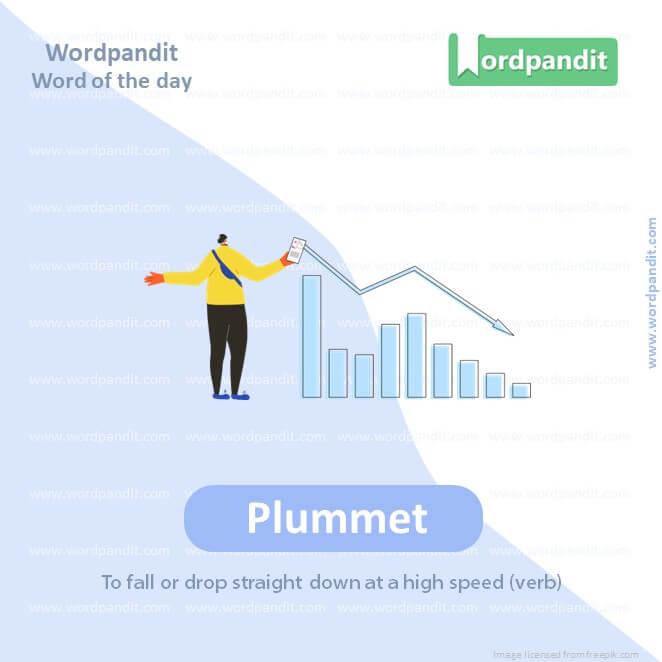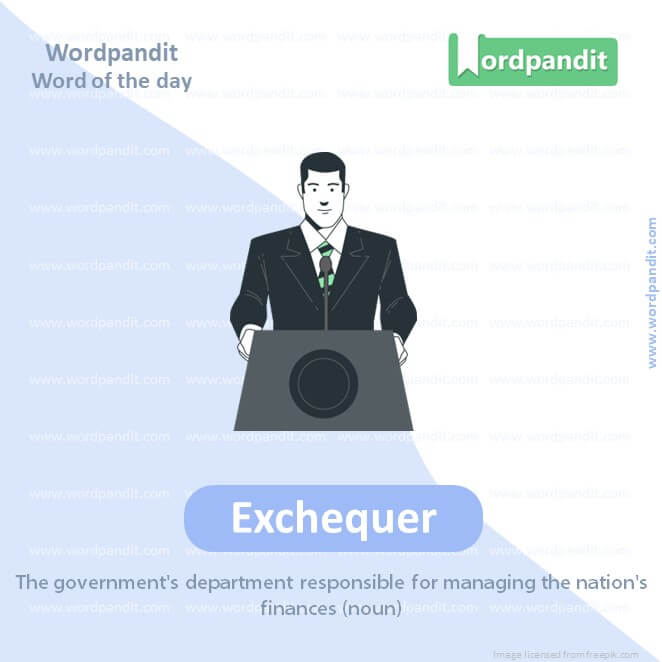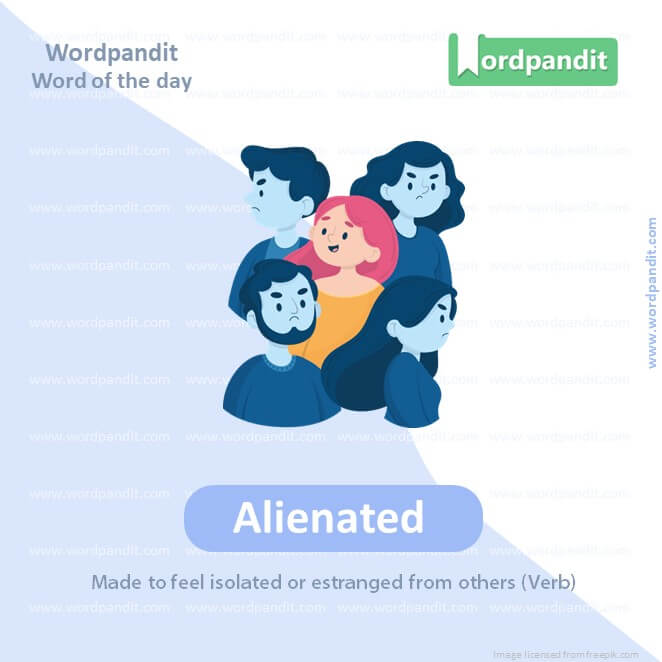Daily Vocabulary Words: List of Daily Used Words
Hi there. Welcome to this special section @ Wordpandit.
Our endeavour here is straightforward: highlighting important daily vocabulary words, you would encounter in The Hindu. This is your repository of commonly used words; essentially, we are posting a list of daily used words. Hence, this has significant practical application as it teaches you words that are commonly used in a leading publication such as The Hindu.
Visit the website daily to learn words from The Hindu.
WORD-1: Meandering
CONTEXT: The Arab states, after much meandering, developed a common position in the Arab League Declaration/Initiative of March 2002.
SOURCE: The Hindu
EXPLANATORY PARAGRAPH: Imagine a river that flows in curves and twists instead of a straight line. That’s like “meandering.” It means to follow a winding or indirect course, often used to describe paths or conversations that aren’t straightforward.
MEANING: Following a winding or indirect course; wandering (adjective).
PRONUNCIATION: mee-an-der-ing
SYNONYMS: winding, twisting, curving, rambling, circuitous
USAGE EXAMPLE:
1. The meandering river created a scenic landscape.
2. His meandering thoughts made it hard to focus.
3. The meandering path through the forest led to hidden treasures.
4. The story’s meandering plot took unexpected turns.
WORD-2: Exorcising
CONTEXT: the main obstacles to a solution have to do with exorcising the past, admitting past and present injustice for one side; forgiving the past, and the present for the other.
SOURCE: The Hindu
EXPLANATORY PARAGRAPH: Imagine someone who believes in ghosts trying to make sure there are no ghosts in their house by performing a ritual. That’s like “exorcising.” It means driving out or attempting to drive out evil spirits or influences.
MEANING: Driving out or attempting to drive out evil spirits or influences (verb).
PRONUNCIATION: ek-sawr-sahyz-ing
SYNONYMS: banishing, expelling, purging, removing, dispelling
USAGE EXAMPLE:
1. The priest performed a ritual for exorcising evil spirits.
2. She felt like she was exorcising her fears by confronting them.
3. The exorcising of negative thoughts led to a more positive mindset.
4. The exorcising of demons is a common theme in folklore and mythology.
WORD-3: Qualitatively
CONTEXT: The effect of the 1967 defeat was qualitatively different from that of the defeats of 1948 and 1956…In the Arab’s ensuring soul-searching, several alternatives were fiercely debated…but a recommendation to seek a political settlement based on a historic compromise was not made.’
SOURCE: The Hindu
EXPLANATORY PARAGRAPH: Imagine you’re comparing two things, not just based on numbers but also on their qualities or characteristics. That’s like something being “qualitatively.” It means relating to or concerning quality rather than quantity.
MEANING: Relating to or concerning quality rather than quantity (adverb).
PRONUNCIATION: kwol-i-tey-tiv-lee
SYNONYMS: in terms of quality, on a qualitative basis, with regard to quality, from a qualitative perspective
USAGE EXAMPLE:
1. The improvement was qualitatively better than expected.
2. She assessed the situation qualitatively rather than just looking at numbers.
3. The study evaluated the program’s success qualitatively and quantitatively.
4. The company’s success can be measured both quantitatively and qualitatively.

WORD-4: Plummet
CONTEXT: In the last week of February, Thomas Friedman wrote about ‘the increasingly rapid erosion of Israel’s standing among friendly nations’ and if [U.S. President Joe] Biden is not careful, America’s global standing will plummet right along with Israel’s.’
SOURCE: The Hindu
EXPLANATORY PARAGRAPH: Imagine a stone falling from a great height and going straight down very quickly. That’s like something “plummeting.” It means to fall or drop straight down at a high speed, often used to describe prices or temperatures decreasing rapidly.
MEANING: To fall or drop straight down at a high speed (verb).
PRONUNCIATION: PLUHM-it
SYNONYMS: fall sharply, drop rapidly, plunge, dive, decrease steeply
USAGE EXAMPLE:
1. The stock prices plummeted after the company’s announcement.
2. Temperatures are expected to plummet overnight.
3. The aircraft plummeted to the ground due to engine failure.
4. The singer’s popularity plummeted after the scandal.
WORD-5: Revitalised
CONTEXT: A revitalised Palestinian state, devoid of radical elements after the experience of the Arab Spring, and a benefiting from the experience of Egypt and Jordan and of the governments party to the Abraham Accords.
SOURCE: The Hindu
EXPLANATORY PARAGRAPH: Imagine a plant that was wilting but then gets plenty of water and sunlight, becoming healthy and vibrant again. That’s like something being “revitalized.” It means to give new life or energy to something, making it lively or active again.
MEANING: Given new life or energy; revived (adjective).
PRONUNCIATION: ree-vi-tuh-lahyzd
SYNONYMS: revived, rejuvenated, reinvigorated, renewed, refreshed
USAGE EXAMPLE:
1. The revitalized neighborhood became a hub for artists and entrepreneurs.
2. The team’s revitalized efforts led to a successful project completion.
3. After the break, she returned to work revitalized and full of ideas.
4. The revitalized park attracted more visitors than ever before.

WORD-6: Exchequer
CONTEXT: First, an increase in the nation’s gross domestic expenditure on research and development (currently below 0.7% of GDP), both from the government exchequer and private players (who contribute less than 40% of the current spending).
SOURCE: The Hindu
EXPLANATORY PARAGRAPH: Imagine a big chest where a king keeps all his treasures and money. That’s like an “exchequer.” It refers to a treasury or a government department responsible for managing public finances.
MEANING: The government’s department responsible for managing the nation’s finances (noun).
PRONUNCIATION: eks-chek-er
SYNONYMS: treasury, coffers, funds, finance department, fiscal authority
USAGE EXAMPLE:
1. The budget allocation was decided by the exchequer.
2. The exchequer’s report showed a deficit in public spending.
3. The finance minister oversees the operations of the exchequer.
4. The exchequer manages taxation and revenue collection.

WORD-7: Flourishing
CONTEXT: Academia without a flourishing start-up ecosystem will not produce innovation for the masses.
SOURCE: The Hindu
EXPLANATORY PARAGRAPH: Imagine a garden full of beautiful, healthy plants growing vigorously. That’s like something “flourishing.” It means thriving, growing well, and being successful.
MEANING: Thriving, growing well, and being successful (adjective).
PRONUNCIATION: FLUR-ish-ing
SYNONYMS: thriving, prospering, successful, burgeoning, booming
USAGE EXAMPLE:
1. The company is flourishing in the competitive market.
2. The flourishing economy led to increased job opportunities.
3. Her flourishing career in medicine began after years of hard work.
4. The garden was a testament to her skill, with plants flourishing everywhere.

WORD-8: Federated
CONTEXT: Parmar says, was partly a response to the histories of Adivasi communities coming under attack from the Rashtriya Swayamsevak Sangh (RSS)-affiliated Akhil Bharatiya Vanvasi Kalyan Ashram and its federated outfits for decades.
SOURCE: The Hindu
EXPLANATORY PARAGRAPH: Imagine you have a group of friends who all agree to play a game together and follow the same rules. That’s like being “federated.” It means to join or unite in a federation or alliance, often for a common purpose.
MEANING: Joined or united in a federation or alliance (adjective).
PRONUNCIATION: FED-uh-rey-tid
SYNONYMS: allied, unified, united, affiliated, associated
USAGE EXAMPLE:
1. The federated states worked together to address regional issues.
2. The clubs federated to organize a larger community event.
3. The federated companies collaborated on a joint marketing campaign.
4. The federated nations signed a treaty for mutual defense.

WORD-9: Alienated
CONTEXT: In the process, they alienate our people from their roots,” Bhagat says, pointing to villages like Sugakatta, where the Vanvasi Kalyan Kendra, another federated outfit of the Sangh Parivar, has built a Hanuman temple and where people no longer see any difference between the traditional Adivasi religion of Sarna and Hinduism.
SOURCE: The Hindu
EXPLANATORY PARAGRAPH: Imagine you have a close friend, but then you start treating them badly, making them feel unwanted or distant. That’s like “alienating.” It means causing someone to feel isolated or estranged.
MEANING: Made to feel isolated or estranged from others (Verb).
PRONUNCIATION: AY-lee-uh-neytd
SYNONYMS: estrange, isolate, distance, separate, detach
USAGE EXAMPLE:
1. His rude behavior alienated many of his colleagues.
2. The new policy alienated a significant portion of the company’s customers.
3. Constant criticism can alienate even the most dedicated employees.
4. Her actions unintentionally alienated her closest friends.
WORD-10: Meandering
CONTEXT: The Arab states, after much meandering, developed a common position in the Arab League Declaration/Initiative of March 2002
SOURCE: The Hindu
Explanatory Paragraph: Imagine a river that flows in curves and twists instead of a straight line. That’s like “meandering.” It means to follow a winding or indirect course, often used to describe paths or conversations that aren’t straightforward.
Meaning: Following a winding or indirect course; wandering (adjective).
Pronunciation: mee-an-der-ing
Synonyms: winding, twisting, curving, rambling, circuitous
Usage Examples:
1. The meandering river created a scenic landscape.
2. His meandering thoughts made it hard to focus.
3. The meandering path through the forest led to hidden treasures.
4. The story’s meandering plot took unexpected turns.
Vocabulary Hard Words
The experience of unraveling the depths of language learning often leads us to ‘vocabulary hard words’. These challenging jargons might seem daunting initially, but with the right learning strategies, the enigma of ‘vocabulary hard words’ can turn into an enticing quest. But how can these ‘vocabulary hard words’ be learned effectively?
Firstly, to master ‘vocabulary hard words’, it’s vital to break down the process into manageable steps. Instead of tackling several words at once, focus on understanding a few each day. This gradual approach ensures effective retention and understanding.
Multimedia resources tremendously aid in comprehending ‘vocabulary hard words’. Movies, podcasts, or even music in the target language contribute a comprehensive perspective. They provide real-life contexts and usages of ‘vocabulary hard words’, making them more understandable and less intimidating.
The incorporation of memory-enhancing techniques, such as flashcards or digital apps, can significantly bolster the retention of ‘vocabulary hard words’. Such tools encourage active recall, helping to cement these words into your long-term memory. Mnemonic devices can also aid in making these words more approachable by associating the hard words with relatable images or stories.
Practice is decisive when learning ‘vocabulary hard words’. Using these words in your conversations, written communications, or even social media posts will facilitate a robust understanding and recall.
Finally, do not worry about making mistakes while using ‘vocabulary hard words’. Mistakes are essential stepping stones in the learning process. They provide insights into areas that need more focus and help refine your grasp over these words.
In conclusion, grasping ‘vocabulary hard words’ is undoubtedly a challenging task but not an insurmountable one. With the aid of effective strategies including graded learning, multimedia resources, memory-enhancing tools, and regular practice, the process of mastering ‘vocabulary hard words’ can become an engaging and rewarding journey.










